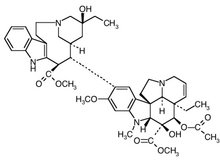SANTA FE, N.M. -- Clinical depression is common in cancer patients and can affect outcomes of cancer therapy if not treated.
About 13% of cancer patients develop a major depressive disorder within 2 years of diagnosis, Karen Weihs, M.D., said at a psychiatric symposium sponsored by the University of Arizona. Some cancers have much higher rates, according to Dr. Weihs, a psychiatrist at the university, in Tucson.
"Depression really is an overrepresented phenomenon, even compared to other kinds of illness," she said, describing the likelihood of depression as more than twice the experience in patients diagnosed with heart disease (Arch. Intern. Med. 2005;165:1260-6).
A recent monograph reported depression to be most prevalent in patients with oropharyngeal (22%-57%), pancreatic (33%-50%), breast (1%-46%), and lung (11%-44%) cancers (J. Natl. Cancer Inst. Monogr. 2004;32:57-71). Depression was also common for patients with colon cancer (13%-25%), gynecological cancer (12%-23%), and lymphoma (9%-19%).
Depressed breast cancer patients have higher mortality than those who are not treated, according to Dr. Weihs. One study put their relative risk at 1.42 (J. Am. Geriatr. Soc. 2004;52:106-11).
Often depression is accompanied by symptoms of post-traumatic stress disorder, though not the full syndrome. About 75% of depressed breast cancer patients will have intrusive memories 19 months after diagnosis.
Along with cancer type, she cited disease severity (threat of early death), pain, declining physical status, and the effects of cancer treatment as general risk factors for depression. Changing from caregiver to care receiver can cause distress, she said, and patients with a history of depression are vulnerable.
Physical and psychological symptoms are more common with chemotherapy, according to Dr. Weihs. One study found clinical depression in 28% of women who underwent chemotherapy and mastectomy but only 17% of women who had mastectomy without chemotherapy (J. Natl. Cancer Inst. 2004;96;376-87).
Cytokines probably play a role in cancer-related depression, she said, noting that pancreatic tumors are characterized by high cytokine release. Depressed cancer patients have elevated cytokines, compared with cancer patients who are not depressed.
Some cancer drugs may promote depression. Dr. Weihs noted that procarbazine inhibits dopamine beta-hydroxylase, while vincristine and vinblastine decrease conversion of dopamine to norepinephrine. Higher depression rates have also been reported in women on tamoxifen: 15%, versus 3% in a control group (Breast Cancer Res. Treat. 1993;27:277-81).
Distinguishing clinical depression from grief over a cancer diagnosis is challenging, especially in patients with a terminal prognosis. "For people who don't see a lot of cancer patients, it is hard to know what is disproportionate," said Dr. Weihs.
She said to approach cancer patients on a mental health continuum. Many will function well at diagnosis, she said, and some who react poorly improve over time.
Dr. Weihs suggested staging depression in cancer patients as follows:
* Prior history that recurs with the cancer.
* First episode occurs during acute treatment for cancer.
* Related to medication or a medical complication.
* Starts after acute treatment in survivorship phase.
Although few studies have tested anti-depressants in cancer patients, Dr. Weihs said the results were consistent: Treatment reduces depression scores on standard measures. One caveat is that paroxetine should not be given to patients who are taking tamoxifen; it may inhibit the drug's activity.
BY JANE SALODOF MACNEIL
Southwest Bureau
COPYRIGHT 2005 International Medical News Group
COPYRIGHT 2005 Gale Group



